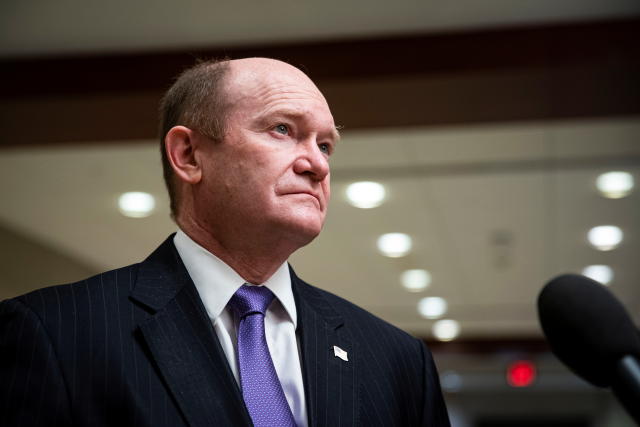Washington AI Rules, NO FAKES Act, artificial intelligence, Hollywood, music industry, movie industry, artists’ rights, Scarlett Johansson, Chris Coons, Sheryl Crow, AI-generated content, digital replicas
Learn about the NO FAKES Act, a new bipartisan bill proposed by Washington to protect artists’ rights against unauthorized AI-generated replicas of their voices and likenesses amid rising tensions in Hollywood.

Washington AI Rules
In the evolving landscape of artificial intelligence (AI) and its growing influence on the creative industries, Washington is stepping up efforts to protect artists. Senators are expected to introduce a bill as early as June 2024 aimed at setting stringent rules governing the use of AI in the music and movie industries. This initiative, known as the NO FAKES Act — which stands for Nurture Originals, Foster Art, and Keep Entertainment Safe — comes at a time when AI-related tensions are increasingly causing unease in Hollywood.
The NO FAKES Act
The NO FAKES Act is a bipartisan proposal designed to prevent individuals or companies from using AI to produce unauthorized digital replicas of an artist’s likeness or voice. The lead sponsor of the bill is Senator Chris Coons (D-Del.), who chairs the Senate Intellectual Property Subcommittee. Coons is collaborating with Senators Amy Klobuchar (D-Minn.), Marsha Blackburn (R-Tenn.), and Thom Tillis (R-N.C.) to finalize the details of the bill. They are working closely with stakeholders from the music and movie industries, as well as individual artists, to ensure that the legislation adequately addresses their concerns.
Senator Klobuchar emphasized the urgency of the situation, stating, “We’re going to have to do a national AI bill or the world will not be the same as we know it.” This sentiment is echoed by Senator Blackburn, who added, “Songwriters, actors, and our incredibly talented creative community deserve the right to own their voice, image, and likeness.”
The Hollywood Backlash
The entertainment industry has recently seen a surge in conflicts arising from the unauthorized use of AI to replicate artists’ voices and likenesses. A notable case involved actress Scarlett Johansson and OpenAI, the maker of ChatGPT. Johansson accused OpenAI of using an “eerily similar” voice to hers for its new chatbot, despite her having declined the company’s request to use her voice. In response to the backlash, OpenAI scrapped the use of the voice, though it did not provide a detailed explanation for the decision.
Music artists are similarly concerned about the lack of protection for their names, likenesses, and voices in the face of AI-generated content. Singers such as Ariana Grande and Lainey Wilson have had their voices mimicked without their permission. Additionally, an anonymous artist released a song titled “Heart on my Sleeve” last year, which falsely impersonated the voices of popular artists Drake and The Weeknd.
The Artist’s Perspective
The concerns voiced by artists highlight the urgent need for regulatory measures. Musician Sheryl Crow, during the annual Grammys on the Hill lobbying event in Washington, underscored the gravity of the situation. “The toothpaste is out of the tube already,” Crow remarked. “We’re going to have to try to figure out some way to create parameters and guardrails. We’ve seen artists already whose voices have been used after they’ve passed on. We’re also seeing artists being used when they have nothing to do with something that’s been put out, and that’s terrifying.”
The Path Forward
The NO FAKES Act represents a significant step towards addressing the challenges posed by AI in the creative industries. By setting clear rules and guidelines, the legislation aims to safeguard the rights of artists and ensure that their voices, images, and likenesses are not exploited without consent. The collaboration between lawmakers and industry stakeholders is crucial in crafting a bill that balances innovation with protection.
However, the path to implementing such regulations is fraught with challenges. The rapid advancement of AI technology means that legislation must be adaptable and forward-thinking. Ensuring that the laws remain relevant in the face of evolving AI capabilities will require continuous dialogue and cooperation between policymakers, artists, and technology developers.
Moreover, the international nature of the entertainment industry adds another layer of complexity. While the NO FAKES Act would protect artists in the United States, global cooperation will be essential to address the cross-border implications of AI-generated content. International agreements and collaborations may be necessary to provide comprehensive protection for artists worldwide.
Conclusion
As AI technology continues to advance, its impact on the creative industries becomes increasingly significant. The NO FAKES Act is a timely response to the growing concerns of artists who fear the unauthorized use of their voices and likenesses. By introducing this legislation, Washington is taking a proactive approach to protect the rights of artists and maintain the integrity of the entertainment industry.
The bipartisan support for the NO FAKES Act reflects a shared recognition of the importance of safeguarding creative expression. As the bill moves forward, it will be essential to ensure that it addresses the concerns of all stakeholders and provides a robust framework for the responsible use of AI in the creative industries.
In conclusion, the push for new AI rules protecting artists is a critical step towards maintaining the balance between technological innovation and the rights of creators. The NO FAKES Act has the potential to set a precedent for how AI is regulated in the entertainment industry, ensuring that artists can continue to thrive in a digital age without fear of exploitation.
Read More-